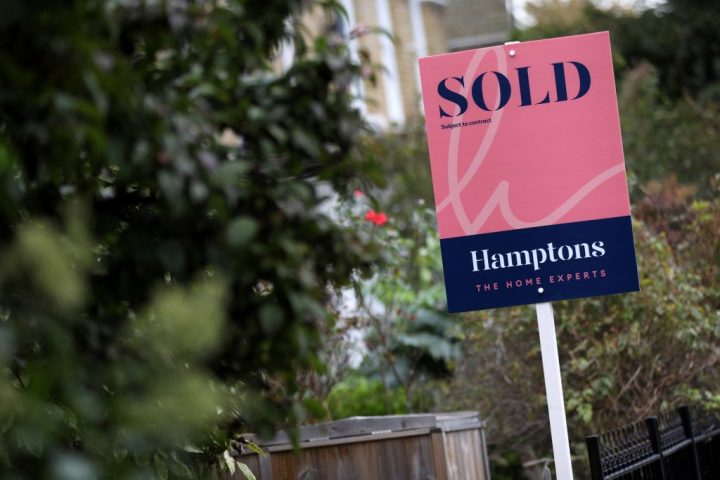Whisper it millennials, but YIMBYism (Yes In My Back Yard) might be gathering momentum. Recent surveys have found more people agree than disagree that there is a housing crisis in their local area, and more would support building houses than oppose it.
They may be given the chance to do so. Last year, government announced plans to give residents the power to opt into more development on their own street through ‘street votes’. And the Levelling Up and Regeneration Bill includes ‘community land auctions’, which would give councils much stronger incentives to permit more housing development.
We shouldn’t let politicians wriggle out of difficult conversations over the housing shortage
But while YIMBYism is strong in principle, it is weaker in practice. The Tory government tried to take bolder steps towards ending the housing crisis when Robert Jenrick held the brief, only to be later defeated by his own party. We’ve done away with building targets, one of the few tools to hold the worst excesses of NIMBYism (Not In My Back Yard) in check.
Meanwhile, government continues to treat private-rented property like a whipping boy, subjecting it to ever-increasing regulation and penal taxation. This feeds into the wider malaise over housing costs because it drives up rental prices. On average, British tenants pay between 40-50 per cent more than their counterparts in France, Germany, Belgium and the Netherlands.
It was reported today that the number of homes available to rent in the UK has fallen by a third in the past 18 months. Those politicians who continue to deny that the law of supply and demand applies to property should take note: the sharp drop in the number of listings has helped drive up rents for new tenants by 11 per cent.
Landlords are among the most maligned groups in modern-day Britain. Novara Media now sells caps with ‘hate landlords’ stitched on the front. A recent article on their site argues that a lack of rent caps or regulations means landlords are ‘getting away with’ passing on costs to tenants, thereby freeing themselves from the sort of belt-tightening most are experiencing due to soaring inflation.
But even if we buy into the anti-landlord populism (and ignore the fact that this is not a homogenous group) what is to be done about it? More regulation won’t hurt them: as long as there’s a shortage of supply, landlords will always be in a stronger position than their tenants. When the government announces that landlords will be blocked from letting properties unless they upgrade them to meet net-zero energy efficiency targets within five years, this will, in the end, lead to higher prices for tenants.
The government is now flip-flopping over ‘no fault evictions’ and how new rules will interact with its antisocial behaviour clampdown. This is layering on obligations to an already-heavily regulated market. We already have strict local authority licensing requirements, a responsibility to check if tenants have the right to rent your property, and to protect tenant deposits in a government-approved scheme. If they really wanted to reduce prices, policymakers wouldn’t introduce virtue-signalling green levies. They would address the root cause of landlords’ market power, by building so much housing that they will be left battling to find new ways to entice tenants to stay.
As for rent controls, the case in favour is intuitive: rents are too high, so the state should cap them. And it’s politically plausible, given the Tories have already abandoned trust in competition and markets with their useless energy price cap. High rents undermine the living standards of renters and, at the lower end of the income scale, have become the main cause of poverty and hardship. Some landlords are unscrupulous and neglect their duty to tenants; though the terrible case of Awaab Ishak suggests this isn’t just a for-profit problem.
However, as with the energy price cap, rent controls don’t address underlying costs or lack of supply. In the end, more people would chase fewer flats. When Berlin introduced a rent freeze, for instance, it swiftly became a sorry affair. Over less than two years, the number of rental properties coming onto the market fell by almost half. The measure has since been abandoned.
Amid the loathing of landlords, we ignore that renting has many positives provided the costs are not prohibitive: from encouraging mobility, especially among young people, to removing concerns over decreasing property value and the flexibility to downsize. Consumers may not always feel like they’re getting bang for their buck, but letting property requires landlords to take on costs and risks.
Painting landlords as nasty profiteers may sound appealing, but it’s as unfair as it is pointless. With the proportion of households that own their accommodation dropping from 64.3 per cent in 2011 to 62.5 per cent today, they are a fixture of the way we currently live. We shouldn’t let politicians wriggle out of difficult conversations over the housing shortage by pinning blame on private landlords or renters. In doing so, we risk undermining the YIMBY cause.






Comments